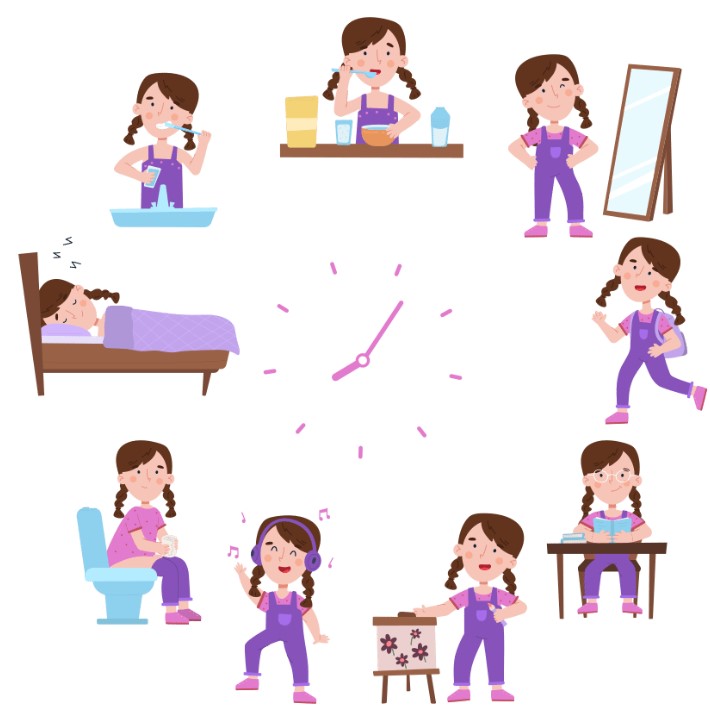Routines are the cornerstone of early childhood development. They provide a sense of security, predictability, and structure that is crucial for young children’s growth and well-being. This article delves into the significance of daily routines for infants and toddlers, exploring how parents and daycare providers can work together to support these routines and foster positive relationships.
According to Howard Gardner’s theory of multiple intelligences, children develop their cognitive abilities through various experiences. Routines offer a consistent framework that allows children to explore and learn about their world.
They help children develop:
Social-emotional skills: Routines can help children develop important social skills, such as sharing, taking turns, and cooperating.
Predictability: Knowing what to expect can reduce anxiety and stress, allowing children to focus on learning and playing.
Independence: Routines can empower children to become more self-sufficient as they learn to anticipate and perform tasks independently.
Language development: Routines provide opportunities for children to hear and use language repeatedly, which can enhance their vocabulary and communication skills.

The Role of Parents and Daycare Providers
To ensure that daily routines are effective, parents and daycare providers must work together to create a consistent and supportive environment.
Parental Support for Daycare Providers:
- Open Communication: Parents should maintain open and honest communication with daycare providers, sharing information about their child’s routines at home. This helps providers understand the child’s preferences and needs.
- Consistent Routines: Parents should strive to maintain consistent routines at home, especially during mealtimes, nap times, and bedtime. This helps children transition smoothly between home and daycare.
- Positive Reinforcement: Parents should praise their children for following routines and encourage them to express their feelings about the transition to daycare. Positive reinforcement can help alleviate any anxiety or resistance.
Daycare Provider Support for Parents:
- Consistent Routines: Daycare providers should establish and maintain consistent routines within the classroom, such as mealtimes, nap times, and circle time. This helps children feel safe and secure in their new environment.
- Open Communication: Providers should communicate regularly with parents, sharing updates about their child’s progress and addressing any concerns.
- Transitional Objects: Encourage parents to provide a familiar object, such as a favorite toy or blanket, to help their child feel more comfortable during the transition to daycare.
- Montessori-Inspired Approach: Consider incorporating elements of the Montessori method, which emphasizes independence, self-directed learning, and respect for the child. This can help children develop a sense of agency and control over their environment.
Building Positive Relationships
A strong and positive relationship between parents and daycare providers is essential for the well-being of the child. By working together, parents and providers can create a supportive and nurturing environment that promotes children’s growth and development.
Key Strategies for Building Positive Relationships:
- Active Listening: Both parents and providers should actively listen to each other’s concerns and perspectives.
- Respect and Empathy: Show respect for each other’s roles and responsibilities and try to understand each other’s point of view.
- Collaboration: Work together to find solutions to challenges and support the child’s development.
- Trust and Transparency: Build trust by being honest and open with each other.
By following these guidelines, parents and daycare providers can create a supportive and nurturing environment that fosters children’s growth, development, and well-being. Daily routines provide a solid foundation for children’s learning and development, and when parents and providers work together, they can ensure that these routines are effective and beneficial.
Contribution by Eunice E. Heredia-Colon, MEd.




